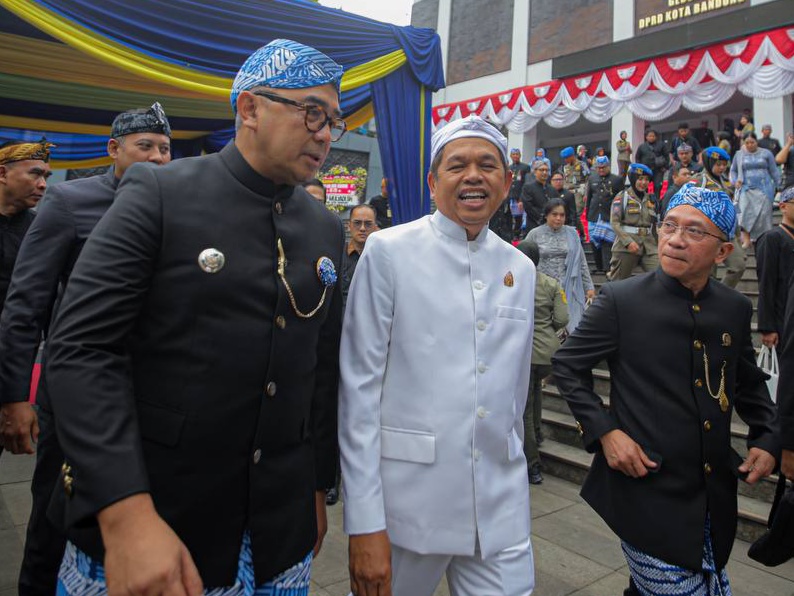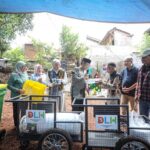On the occasion of the 215th Anniversary of Bandung City, the Chairman of the City DPRD, Asep Mulyadi, urged the Bandung City Government to strengthen empathy and closeness with the community in implementing development programs.
“From us as people’s representatives, we will go down to the communities and constituents more often, to listen more to input from citizens and the public,” said Asep after the Plenary Session for the 215th Anniversary at the DPRD Building.
Asep emphasized he would oversee and monitor the implementation of the City Government’s programs, especially those related to priority issues such as poverty, unemployment, traffic congestion, and waste management.
“The City Government must strengthen collaboration. If it only relies on local budget capabilities, it will certainly take a long time. With support from the provincial and central governments, opportunities can be maximized,” explained Asep.
The DPRD also mentioned the reduction in transfer funds from the central government. However, it is believed this can still be overcome through good communication with both the provincial and central governments.
When asked about the realization of the program to resolve traffic congestion targeted by the West Java Governor, Dedi Mulyadi, Asep said that support in the form of optimism is still necessary.
“Optimism for achieving the target remains. We need to give the city government a chance to work. By the 2027 target, real changes to reduce congestion in Bandung City are expected to be visible,” he said.

The Free Nutritious Meals program is currently in the public spotlight. The large budget allocation, reaching hundreds of trillions, has sparked intense debate, ranging from accusations of populism to concerns about governance.
A defense management expert stated that this debate often forgets the most basic aspect, namely that the program is part of a long-term defense strategy.
According to him, no matter how great the curriculum, how sophisticated the military equipment, or how magnificent the military bases, everything is fragile if the next generation grows up malnourished. Children who lack nutrition not only have difficulty absorbing knowledge but also grow into weak human resources, both physically and cognitively.
“In the long term, this means Indonesia loses its national strength reserves, both in the civilian and military spheres,” he explained.
He cited several international studies that confirm the importance of early nutritional intervention. A study showed that nutritional intervention at an early age can significantly improve cognitive scores.
Data indicated that malnourished children are more frequently absent, have lower achievement, and decreased productivity in adulthood. Another study found that deficiencies in iron and iodine are directly related to decreased concentration, memory, and academic performance.
“Education without nutrition is like a warship without fuel. It will not function optimally, and could even stop completely,” he emphasized.
From a defense management perspective, the program falls into the category of non-military defense. Defense, he said, is not only about weapons, tanks, and fighter jets, but also about human resilience.
“The concept of total defense affirms that the people are the most vital component of defense. A nation whose young generation is healthy, intelligent, and well-nourished will be more prepared to build strength in research, technology, and the defense industry,” he said.
Conversely, if a generation grows up malnourished, Indonesia will only be a “spectator” on the global stage, both in the economic and defense sectors. Therefore, he asserted, stopping the program is equivalent to weakening the nation’s defense foundation at its roots.
However, he believes criticism is still necessary, especially regarding governance. “The risks of populism, potential corruption, or budget waste are legitimate concerns. But criticism should be directed at improving governance, not stopping the program,” he said.
He mentioned several things that must be strictly maintained: budget transparency, so the public knows where funds are allocated; the quality of balanced nutritious menus, with the fulfillment of important micronutrients such as iron, iodine






